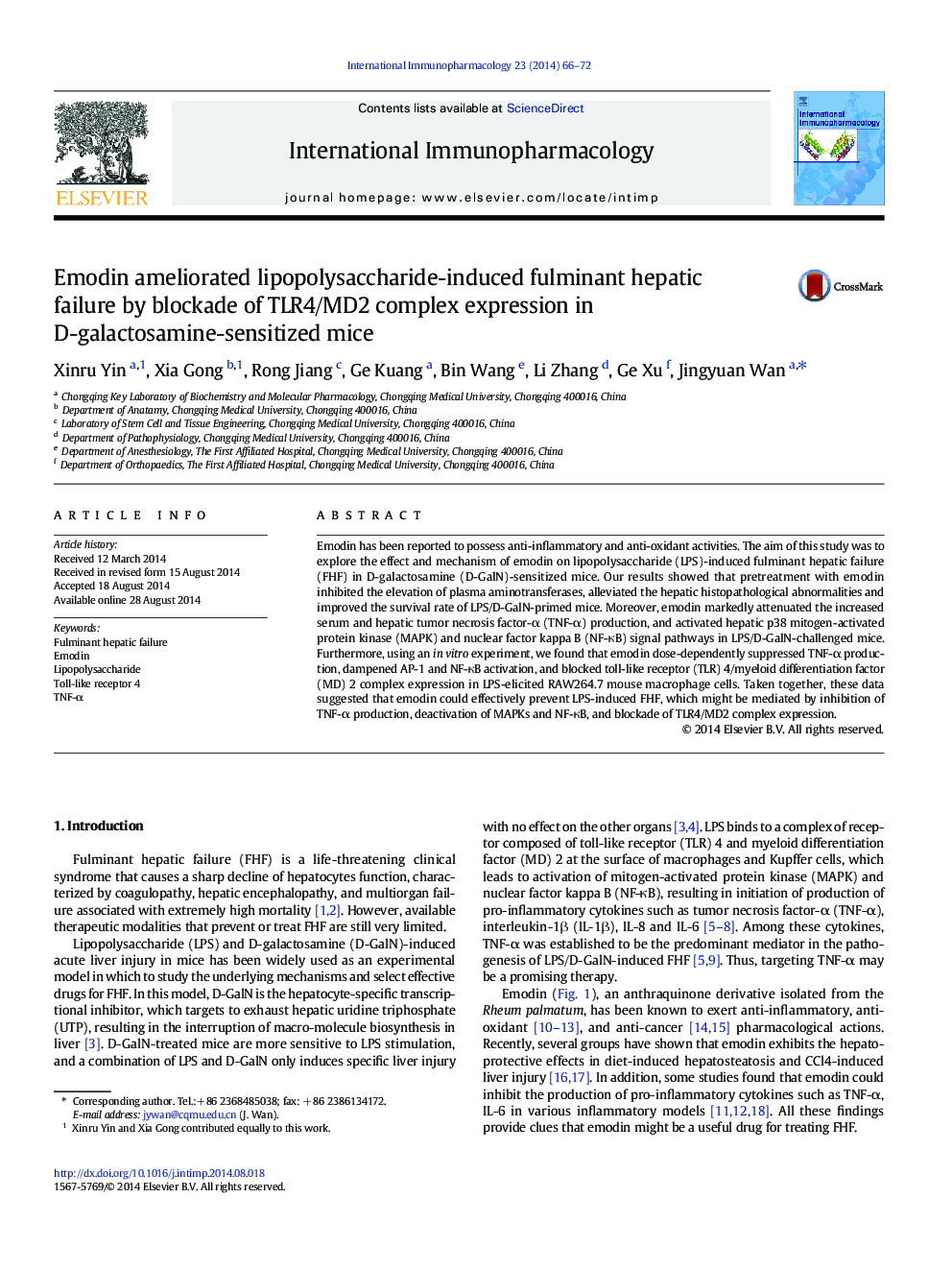| Article ID | Journal | Published Year | Pages | File Type |
|---|---|---|---|---|
| 2540688 | International Immunopharmacology | 2014 | 7 Pages |
•Emodin protected against LPS/D-GalN-induced liver injury in mice.•Emodin attenuated LPS-induced TNF-α production.•Emodin suppressed LPS-induced p38 MAPKs and NF-κB activation.•Emodin blocked LPS-induced TLR4/MD2 complex expression.
Emodin has been reported to possess anti-inflammatory and anti-oxidant activities. The aim of this study was to explore the effect and mechanism of emodin on lipopolysaccharide (LPS)-induced fulminant hepatic failure (FHF) in D-galactosamine (D-GalN)-sensitized mice. Our results showed that pretreatment with emodin inhibited the elevation of plasma aminotransferases, alleviated the hepatic histopathological abnormalities and improved the survival rate of LPS/D-GalN-primed mice. Moreover, emodin markedly attenuated the increased serum and hepatic tumor necrosis factor-α (TNF-α) production, and activated hepatic p38 mitogen-activated protein kinase (MAPK) and nuclear factor kappa B (NF-κB) signal pathways in LPS/D-GalN-challenged mice. Furthermore, using an in vitro experiment, we found that emodin dose-dependently suppressed TNF-α production, dampened AP-1 and NF-κB activation, and blocked toll-like receptor (TLR) 4/myeloid differentiation factor (MD) 2 complex expression in LPS-elicited RAW264.7 mouse macrophage cells. Taken together, these data suggested that emodin could effectively prevent LPS-induced FHF, which might be mediated by inhibition of TNF-α production, deactivation of MAPKs and NF-κB, and blockade of TLR4/MD2 complex expression.
Graphical abstractFigure optionsDownload full-size imageDownload as PowerPoint slide
